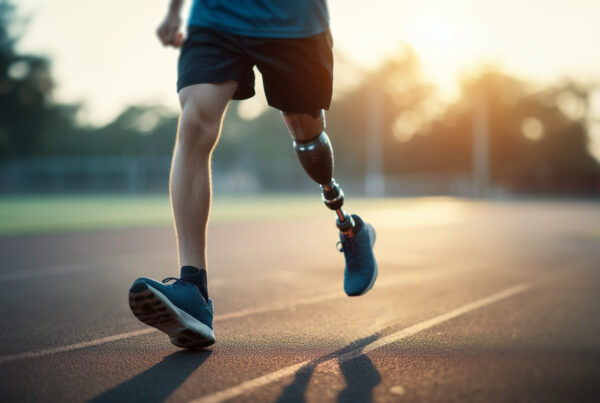”Question: Is it true that I can get a stronger immune system from working out?
Reading time: 5 Minutes
MWi Hack:
- Learn how exercise can support your immune system.
MWi Summary:
-
- Exercise increases blood and lymph flow which circulates immune cells throughout the body more frequently than if you were sedentary.
- Consistent exercise leads to a better immune response.
- Exercise reduces inflammation and lower levels of inflammation are connected to better immune response.
- There is limited research when it comes to types of exercise and immune response.
You can boost your immune system with stress management and a balanced diet. But exercise also boosts your immune system, supporting your overall health.
Of course, lacing your sneakers for a run can sometimes feel like the last thing you want to do. But the simple act of moving your body more can provide a powerful tool for fighting infection. The catch? Not all exercise is entirely helpful to your immune system.
To explain the connection between exercise and immunity, Health spoke with experts who have studied exercise’s effect on the immune system. Here’s how to make the most of your workouts for your overall health.
How Does Exercise Boost Your Immune System?
In addition to improving your mental health, a 2019 scientific review in the Journal of Sport and Health Science found that exercise can improve your immune response, lower illness risk, and reduce inflammation.1
The study looked at “acute exercise,” meaning moderate to vigorous intensity lasting less than an hour. (The study mainly examined walking, which could also mean an elliptical workout, a spin class, or even a run.)
Study author David Nieman, DrPH, a professor in the department of biology at Appalachian State University and director of the university’s Human Performance Laboratory, told Health that typically, people only have a small number of immune cells circulating the body. Those cells prefer to hang out in lymphoid tissues and organs like the spleen, where your body kills viruses, bacteria, and other microorganisms that cause disease.
Increases Blood and Lymph Flow
Because exercise increases blood and lymph flow as your muscles contract, it also increases the circulation of immune cells, making them roam the body at a higher rate and higher numbers, said Dr. Nieman. Specifically, exercise helps to recruit highly specialized immune cells—such as natural killer cells and T cells—find pathogens (like viruses) and wipe them out.
In Dr. Nieman’s 2019 review, participants who took a 45-minute brisk walk experienced this uptick of immune cells floating around the body for up to three hours after the walk.
Better Immune Response With Consistency
While you get an immediate response from your immune system when you exercise, that will eventually go away—unless, that is, you keep working out consistently. “If you go out for 45 minutes of exercise the next day, this all happens again,” said Dr. Nieman. “It all adds up as time goes on.”
Another study by Dr. Nieman and his team found that those who did aerobic exercise five or more days a week lowered the number of upper respiratory tract infections (like the common cold) over 12 weeks by more than 40%.2
In 2022, research published in the British Journal of Sports Medicine looked at 16 studies of people who stayed physically active during the pandemic. The researchers found that exercising was associated with a lower risk of infection and a lower likelihood of severe COVID-19. People from around the world who worked out regularly had a 36% lower risk of hospitalization and a 43% lower risk of death from COVID-19 than those who were not active.3
Think of the lasting immune effect of exercise like this, explained Dr. Nieman: Say you have a housekeeper come over to clean your home for 45 minutes most days of the week. The house will look a lot better on that first day than if someone never came. But the more frequently the housekeeper returns, the better and cleaner the house will look.
“Exercise really is a housekeeping activity, where it helps the immune system patrol the body and detect and evade bacteria and viruses,” said Dr. Nieman. So, you can’t necessarily exercise one day here and there and expect to have an illness-clearing immune system. Come back for more movement regularly, and your immune system is better prepared to wipe out sickness-causing germs.
This holds up, even as you get older.4
Decreases Inflammation
Another benefit of exercise is that it decreases inflammation in the body—which, in turn, can also improve immunity. Some research noted that exercise can enhance immune function and reduce inflammation5.
According to Dr. Nieman, decreased inflammation goes hand-in-hand with immunity. “When immune cells try to function with inflammation, it puts the immune system in a chronically inflamed state too,” said Dr. Nieman, which makes it harder to fight infection. To cut down on inflammation, kick up your activity level.
What’s the Best Type of Exercise To Boost Immunity?
There’s limited research on the best type of exercise to boost immunity. Most studies, including Dr. Nieman’s, looked at aerobic activity—think walking, running, or cycling.
Walking
To gain the benefits, it’s best to push the pace a bit when walking. “For most people, we’re talking about a 15-minute mile,” said Dr. Neiman of the average pace that led to promising results in his studies. “That’s sufficient stimulus to recruit immune cells into circulation.” For other forms of exercise, aim to reach about 60% of your VO2 max or about 70% of your max heart rate, suggested Dr. Nieman.
HIIT Workouts
There’s less science on high-intensity interval training workouts (or HIIT, a popular type of exercise) and whether they help your immunity. One study from 2018 published in the journal Arthritis Research & Therapy, which focused on arthritis patients, found that HIIT could improve immune function. Another 2014 study in the Journal of Inflammation Research found that HIIT workouts don’t lower immunity.67
In general, said Dr. Neiman, interval workouts are likely OK. “Our bodies are used to this back-and-forth nature, even for a few hours, as long as it’s not unrelenting high-intensity exercise,” said Dr. Neiman.
Strength Training
The same goes for strength training—it likely helps your immune system, but there’s less research backing up its benefits on immunity. Adam Jajtner, Ph.D., CSCS, assistant professor of exercise science and physiology at Kent State University, who has also studied exercise and the immune response, touted resistance training as a smart strategy for improving immunity.
However, Dr. Jajtner cautioned against severe muscle-damaging workouts, like lifting super heavy or doing eccentric exercises (slowing down the downward phase of a movement) so that the muscle repair process doesn’t compete with your immune function. So, unless you’ve regularly been keeping up with a workout like CrossFit, now’s probably not the time to start a new high-impact strength routine.






